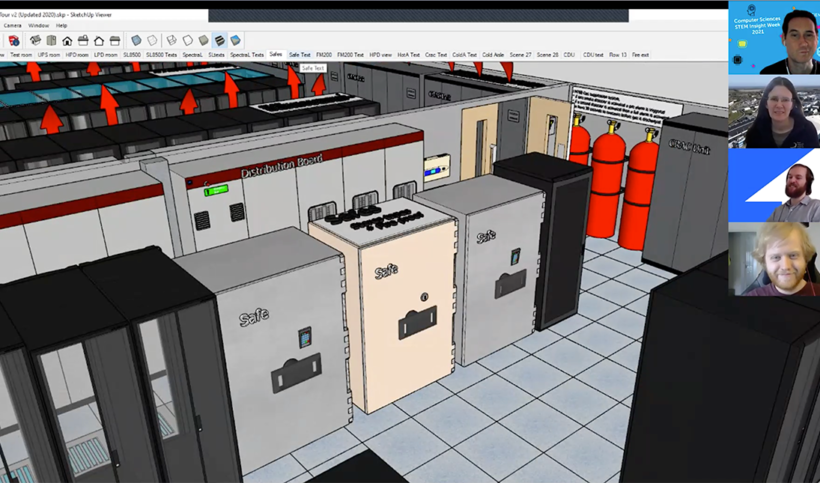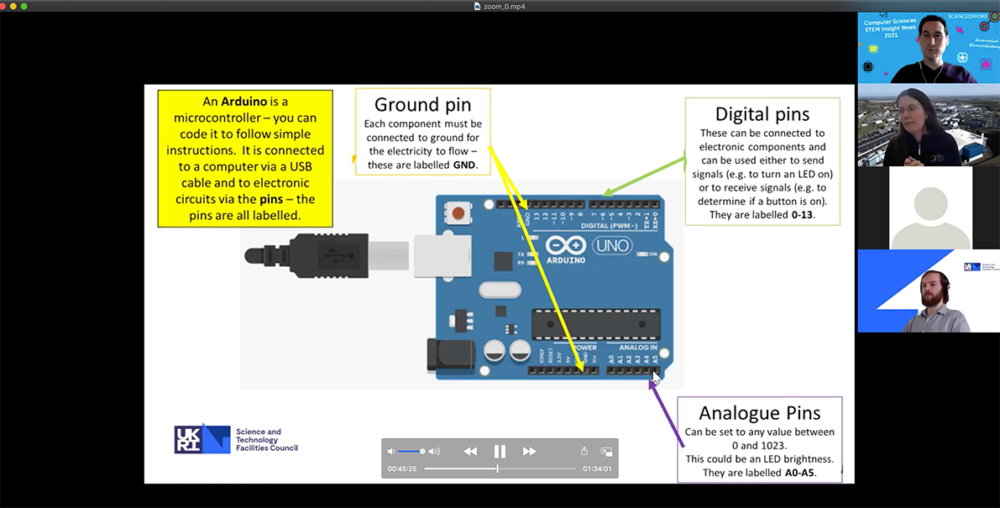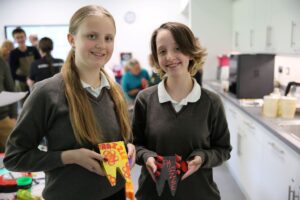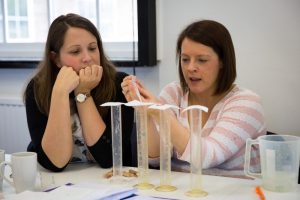Big data, little data: insight into STEM Careers
Wednesday 3rd March 2021

As we celebrate National Careers Week, a UK initiative to empower and inform students about the world of work, we highlight Science Oxford’s STEM Careers Programme — designed to inspire young people considering a career in science, technology, engineering and maths.
Our virtual STEM Insight Week took place during February half-term, where we introduced 22 students to careers in computer sciences with the support of 8 local businesses. A packed week included virtual tours, career stories and interactive activities, from CV writing to presenting. Staff, graduates and apprentices from companies such as Abbott, Sophos and the Big Data Institute shared personal experiences on topical issues such as cyber-security and healthcare during the pandemic.
Abbott is a global healthcare company and employs over 100,000 staff worldwide. The Oxfordshire office focuses on diabetes care and exports their glucose monitoring products to 160 countries. For our STEM Insight Week, they ran a session called “Trending Now! Data Analysis”. First up were a series of short talks from two system engineers, a statistician and a “lean sigma blackbelt” – which means improving products and processes – on their careers as well as what they like doing out of work (listening to cheesy music and boxing!). This was followed by a presentation on diabetes and how data analysis is used to test and improve products, R&D, and check efficiencies and manufacturing. With all this information on board, students were then put into breakout rooms and given a real-life analysis challenge, which they passed with flying colours.
Do you know the difference between a virus and a worm? Or when the first computer virus was released? Cybersecurity experts, Sophos gave students a great insight into endpoint protection and security products. An Oxford-based start-up, the company was founded in 1985 by Oxford academics Dr Jan Hruska and Dr Peter Lammer, who met when they were engineering research students at the University of Oxford. Sophos was one of the first companies in the world to market anti-virus software. Its products combat cybercriminal tactics – including ransomware, malware, pishing and breaches. The company mainly works with businesses but also has a few antivirus packages for general consumers, with more than 400,000 customers in 150 countries. Aside from talks, students were given a half-hour test to find out how much they really know about the dark world of computer viruses – scores were high!
World-renowned cybercrime experts McAfee regularly publish free information on new cyber threats – in fact, one of the speakers had published a new update that morning. Computer Sciences careers are particularly under-represented by women in STEM but McAfee actively encourages women to consider careers in this area. They are committed to addressing the gender imbalance and creating opportunities – so there are more options for the next generation of school leavers.

Arduino workshop with STFC
A virtual tour of the Computing Division of Science and Technology Facilities Council showed us vast and ever-increasing amounts of data stored at the government-funded facility in Oxfordshire. STFC scientists investigate everything from the very small to very large – the fundamental building blocks of the universe, to the coronavirus and even dinosaurs. They store (and regularly delete) ‘petabytes’ of incoming data from across the globe, be it from the Met Office, satellites observing the earth or even space missions. Remarkably, physical tapes are the most enduring and cheapest way to store data. Will they eventually run out of storage? Yes, one day – in fact, they challenged our students to invent a solution in the future!
So how can we use new technology to address community, wellbeing and look after the planet, issues close to the hearts of many young people today. Every student on our STEM Insight Week received a free micro:bit so they could invent prototypes for the Do Your :bit Global Goals competition. Topical ideas included: how to detect and manage a panic attack, and a daily exercise challenge.

Over the week, there were also sessions on computer and coding training and continuous professional development with British Computer Society, break out activities with Oxford Computer Consultants, a talk from University of Oxford’s Big Data Institute plus we got to meet a computational scientist from Vertex Pharmaceuticals.
This is what our students thought of the week:
“It teaches you a lot about careers in the computing field that you cannot learn elsewhere.”
“I would definitely recommend Science Oxford’s STEM Insight Week to other students because it was a really useful opportunity to learn about various careers with in the computing field and hear the stories of many people working in different companies.”
And there was great feedback from a parent too:
“It’s given my son a purpose at a difficult time, where it could be easy for teenagers to get bogged down in the situation that they are currently in with the pandemic and not being at school /able to see friends.”
Science Oxford runs STEM Insight Weeks throughout the year and they’re free! All you need is a teacher reference to apply. You can find out more about our STEM Careers Programme. If you want to be kept up-to-date with Science Oxford news and events, sign up to our newsletter.
We would like to thank all the businesses and organisations that were involved in the week. We couldn’t have done it without you!



